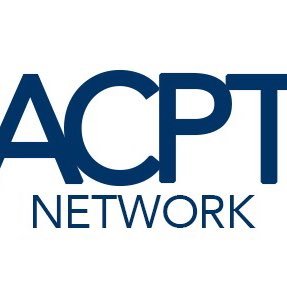 by Hannah Oladugba, Physiotherapist, ACPT Network
by Hannah Oladugba, Physiotherapist, ACPT Network
When I first decided to become a physiotherapist, I looked to my search engine (I believe this was ‘ASK Jeeves’ at the time) for as much information on the profession as possible. I quickly found that physiotherapy is, traditionally, a profession that has long been perceived as Caucasian and middle class. And even in more recent years, research has shown that, from 2017 to 2018, only 19% of all UK physiotherapy programme student enrolments were from a Black and minority ethnic background. I say all this to highlight that when I started my physiotherapy MSc degree in Scotland, like many Black students, there were times where I felt alone or isolated, as neither the students, lecturers nor clinical educators represented me.
During my last placement in London, I was supervised by the first male Black physiotherapist I had met. Until then, I did not realise how empowering it was to see yourself represented in your workforce. At my first job, I met Esther, the first female Black physiotherapist I had worked with. I was ecstatic, I felt seen and represented. Esther and I became friends; she helped me with my interview skills, and I helped her navigate workplace dynamics. We were able to share experiences that ultimately made us better physiotherapists. After a dinner, on a very hard day at work, we founded the ACPT (African Caribbean Physiotherapy) Network. It is a space for Black physiotherapists to gain a sense of belonging to a group of people with diverse and yet similar experiences.
 The ACPT Network’s mission is to create a strong, visible, and a positive community of aspiring and qualified physiotherapists from an Afro-Caribbean heritage within the UK. Our vision involves building a support network that provides mentorship, skills-based workshops, and transferable professional skills to equip and facilitate continuous professional development. The network was founded on the belief that being of African-Caribbean heritage should not limit personal and professional development in an historically, Caucasian, middle class profession. As a result, ACPT Network aims to bridge the gap of under-representation and connect like-minded individuals in a safe, comfortable environment to enhance the visibility of diversity within physiotherapy.
The ACPT Network’s mission is to create a strong, visible, and a positive community of aspiring and qualified physiotherapists from an Afro-Caribbean heritage within the UK. Our vision involves building a support network that provides mentorship, skills-based workshops, and transferable professional skills to equip and facilitate continuous professional development. The network was founded on the belief that being of African-Caribbean heritage should not limit personal and professional development in an historically, Caucasian, middle class profession. As a result, ACPT Network aims to bridge the gap of under-representation and connect like-minded individuals in a safe, comfortable environment to enhance the visibility of diversity within physiotherapy.
As ARMA is the alliance providing a collective voice for the arthritis and musculoskeletal community in the UK, I believe that it is important that we continue to work together to ensure that this collective involves the voices of networks like ACPT. This is key as the nature and culture of the healthcare presents some unique issues for some cultural and faith groups with the Black community, and this should be considered in policies and practices regarding musculoskeletal (MSK) disorders in the UK. It has been a privilege to witness the work of ARMA and see the changes the collective has made. Importantly, I look forward to seeing spaces like ARMA further embrace and actively seek the representation of Black and minority ethnic groups.
The ACPT would love to hear from you so please follow us on all our social media pages.
Instagram: acpt_network
Facebook: ACPT Network
Twitter: ACPTNetwork

